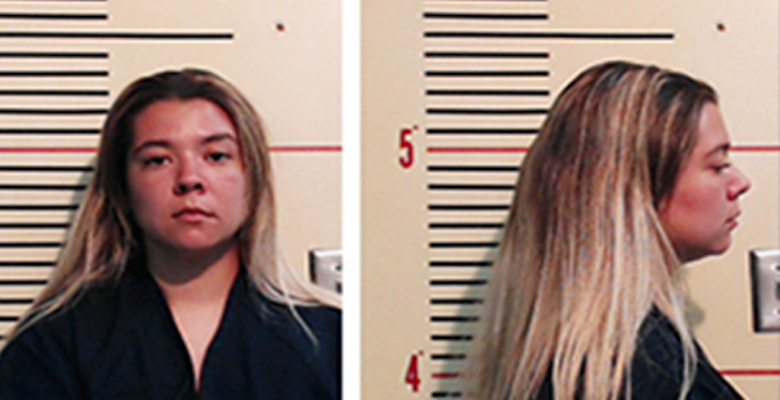- Study Says Most Parents Don’t Use Car Seats In Ride Share Vehicles Like Uber
- This 12-Year-Old Boy Is A Sophomore Aerospace Engineering Major!
- Fire Safety Experts Warn Of Hand Sanitizer Danger After A Mom and Kids Escape House Fire
- Recall Alert: Peaches May Be The Cause Of Salmonella Outbreak, 68 People Ill
- Summer Vacation In The Days Of COVID: Tips To Stay Safe
- How To Safely Grocery Shop During The Coronavirus Pandemic
- Michigan Teen With Vape-Related Illness Undergoes Double Lung Transplant
- Teen Kicks Off Anti-Vaping Campaign From Hospital Bed
- Teenager Receives Life Sentence For Strangling Sister To Death Over A Wi-Fi Password
- Toddler Falls To Death From 11th Deck of Cruise Ship
Sentenced: Mother Who’s Toddlers Died After She Left Them In Hot Car As ‘A Lesson”


A woman from Texas whose two toddlers died in a hot car last year after she locked them inside to teach them “a lesson” has been sentenced to 20 years in prison.
Cynthia Marie Randolph, 25, has been found guilty of two counts of reckless injury to a child in the deaths last May of 2-year-old Juliet Ramirez and 16-month-old Cavanaugh Ramirez. Each count, a second-degree felony, carried with it a maximum sentence of 20 years in prison.
Randolph will be serving both sentences simultaneously, court records stated.
Randolph said to investigators that she had been angry with her children, whom she found playing inside her car in the driveway on a hot day last May, and left them inside the vehicle, assuming they could get out themselves.
So the Mother went back inside their home, smoked marijuana, watched “Keeping Up With the Kardashians” and took a 2- to 3-hour nap, according to trial testimony, the Fort Worth Star-Telegram reported.
By the time she went back to the car, the kids were unresponsive — and soon to be pronounced dead.
“Their lives were taken from them before they even had a chance to start,” prosecutor Abby Placke said Monday, according to CBS DFW.
But that account of the events wasn’t what Randolph initially told police.
On May 26, 2017, the day her two kids were found dead, Randolph instead fabricated for investigators a mother’s nightmare: She said that she had been folding laundry and watching television while Juliet and Cavanaugh played in an enclosed sun room on the back porch.
Randolph told police that she went to check on her children after about a half-hour — but they were “gone.” She said that, after a half-hour of searching, she finally spotted their bodies, unresponsive, inside her 2010 Honda Crosstour parked in her driveway.
On that day, the high temperature outside Randolph’s home in Weatherford, Tex., reached 96 degrees.
Medics pronounced both children dead at the scene, authorities said.
According to the Parker County Sheriff’s Office, when asked how long the children might have been exposed to the high temperatures inside the car, Randolph responded immediately saying: “No more than an hour.”
But in the weeks after the deaths, as investigators continued to interview Randolph, her explanation for what happened unraveled. Randolph “created several variations of the events” of May 26, police said — and was arrested less than a month after the tragedy.
In a last interview with investigators last June, Randolph described an entirely different timeline for what happened that day — one that began much earlier in the afternoon than she had previously admitted.
At about 12:15 p.m., Randolph said that she had found her children playing inside her car and ordered them to come out, police said.
“Stop your [expletive],” Randolph said she told her 2-year-old daughter, according to police.
“When they refused to exit, Randolph told police she shut the car door to teach Juliet a lesson, thinking she could get herself and her brother out of the car when ready,” a probable cause affidavit for the incident said. “The defendant went inside the house, smoked marijuana and took a nap. The defendant said she was asleep for two or three hours.”
It was only after her nap that she found her children unresponsive inside the Honda Crosstour, police said. Randolph further told investigators that she broke the car window so that it would look like an accident, police said.
Randolph was arrested in June last year, and a grand jury indicted Randolph last summer on two counts of knowingly causing serious injury to a child, a first-degree felony, which would have carried life sentences.
But, Randolph was convicted of the lesser charges as jurors did not find that she had acted with criminal intent, the Fort Worth Star Telegram reported.
“We thought that the evidence supported a finding that she acted knowingly,” prosecutor Kathleen Catania said on Monday. “This distinction was a pretty challenging one for jurors to make. We appreciate the jury’s dedication throughout this long and emotional trial.”





0 comments